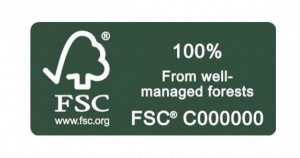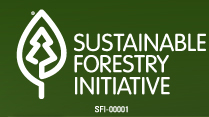-Revée Needham ‘18
In 2016, Colgate’s Office for Off-Campus Study, Office of Sustainability, and Patagonia Sur came together to develop a new extended study in Patagonia. Among a large applicant pool excited to participate in this first-time extended study, I was chosen as one of the twelve students to join Biology Associate Professor Eddie Watkins and the Director of Sustainability, John Pumilio, on the trip.
In preparation for the extended study, we took the biology course Field Ecology during the fall semester. In class, we learned about the geography, climate, biology, history and more of South America, Argentina, and Chile, with a focus on the Patagonian region. The class was structured as a “jigsaw,” where we learned from each other and were all given the opportunity to facilitate class discussion, in addition to a variety of class speakers that were brought in. After we finished our coursework we packed up all of our biology field equipment and departed for Buenos Aires, Argentina in late December.
There, we spent four days acquainting ourselves with the southern hemisphere and Argentina’s culture and history. Instead of biking around the vast city, we took motorized bikes to explore the city and examine the urban ecology of the Plaza de las Naciones Unidas. Our hotel, conveniently located across from the local market stalls, overlooked the Recoleta Cemetery. Recoleta Cemetery houses a beautiful collection of Argentinian families’ mausoleums with some still in use today. After trying the delicious Argentine delicacy, empanada, we traveled to our final destination: the Patagonia Sur Valle California property outside of the town of Palena, Chile.

The group after our final hike, overlooking the Valle California properties (Photo courtesy of Austin Sun)
Two visitors, Professor Álvaro Promis and Forestry Manager Matias Rio, joined us in Valle California. Professor Promis studies forest ecosystem succession and Mr. Rio was one of the original people to plant the saplings back in 2011. These two were able to teach us about the native plants and reforestation process, respectively. While reforestation may sound simple on paper on paper, the planting of the trees is quite the arduous process. Due to the remote location, transporting the trees to the plots requires numerous trips by horseback. We got a small taste of the endurance required when we planted 160 trees, nowhere near the 40,000+ saplings in the Colgate Forest. Additionally, we learned a subset of the birds and understory plants and even took quizzes to identify them! While I’m not a self-described “plant nerd,” I did find it exhilarating to be able to look at a plant along the path and correctly say “that’s blechnum.”
The research component of the trip involved assessing the health of the forest plots and then comparing them to native forests. We set up 5 transects, or plots, to measure ranging from an old-growth Nothofagus pumilio forest to the young reforested Nothofagus antarctica saplings.
We measured light transmission, tree height and width, soil nutrients, understory plant identification, and classified insects and birds. To determine which birds were visiting the forests, we conducted the Breeding Bird survey, and stopped for 3 minutes every 100 meters in an area to listen with our ears and look with our eyes to then classify the bird species with our books and the help of John Pumilio.

Students enjoyed researching in Patagonia. (Photo courtesy of Austin Sun)
Classifying the understory plants, by walking along the plot and identifying all the species that we could see, helped us to study for our plants quiz! For the focus of our study, the tree saplings, we measured the basal circumference, the tree height, and the season’s growth. We did this for every single sapling in our plot- quite the tedious process. It was tricky at first to distinguish the reforested saplings from the understory plants, but after a while, I could see Nothofagus antarctica in my sleep. Because of the remote location, our limited equipment, and the young age of the trees, we were unable to conclude much, other than that the forest should continue to be monitored in the future to ensure its continued success. The trees have had to be replanted a few times due to disturbances by local hares and wild pigs.
In addition to the biology research, we made the most of the beautiful facilities by hiking, swimming, fly fishing, rafting, camping, and more. I rode a horse for the first time in my life to trek to the Colgate Forest plots thanks to the help of our gauchos (cowboys). Thankfully, I didn’t fall off! After a day of whitewater rafting, we camped in tents alongside a gorgeous river, where the sunset was a picturesque scene for us to enjoy. The next morning, we witnessed what it took to lasso a sheep and sheer its wool by hand. There, we visited a local woman who spun wool from her sheep into yarn that she uses to knit, crochet, weave products that she then sells at a local market. She also continued the tradition of weaving by teaching and empowering local girls with her knowledge of the trade.
Finally, we attended a fundraiser bingo night in Palena to support the nearby landslide-devastated Chilean town, Santa Lucia with the financial assistance of the COVE. Before the trip departed, we had planned on visiting Santa Lucia, but due to the landslide that became impossible. So, we felt a connection to this town that was recovering from a tragedy and we were grateful to be able to give back. At bingo, the gymnasium was packed with the entire town’s population, and us too, an eclectic group of outsiders excited for the game. The entirety of the bingo prizes were donated by the locals, and ranged from sheep to traditional maté tea and everything in between. That night was a highlight for the entire group, where we came together with the town of Palena for a bigger cause. On our final day in Patagonia, we celebrated our time with a traditional lamb feast. We concluded with a reflection of our favorite memories of the trip, and the people who made it so special, with many us tipping our hats to the chef, Alejandro.

Susanna explaining how she weaves using her loom (Photo courtesy of Austin Sun)
At the conclusion of our visit, we gave a final presentation to some of the Valle California staff and wrote a final report detailing our research and recommendations. Our project was geared towards the biology and ecology of the forest, yet many of us were interested in the economic and social factors too. Thus, future extended studies and trips should broaden their focus to include this equally as important factors. We were grateful to use the luxurious amenities at Patagonia Sur, however, these were largely inaccessible to the local people. The gate to the Patagonia Sur properties was locked and locals were only able to visit the beautiful site if they rented out the dining area for a hefty price. From informal discussions with the staff members, they wished there was a greater involvement of the property with the Chileans. While Patagonia Sur started with great intentions to conserve the land and restore the ecosystem, it would better serve the community as an open and accessible site with sustainable use. In addition, while our Colgate group came to conduct research, the type of work we did could be continued by other scholars from the area. With numerous schools and universities in Chile, it would be prudent to continue the forest research with a local team who are equally as capable. We also proposed that Patagonia Sur combine ecotourism with the research opportunities to develop an environmental education and outreach program. While Colgate University is not responsible for the business model and practices of Patagonia Sur, the class participants hope to encourage the board of Patagonia Sur to consider developing a more participatory business venture that benefits the local community.
On behalf of the entire class, I extend our sincerest gratitude to all those who assisted in the preparation for the trip and the fabulous experience we had at Patagonia Sur. I wish the best of luck to the next extended study group of students.
FAQ:
How did this project come to fruition?
The extended study trip that culminated in January 2018 has its origins in the creation of the Colgate Forest in 2011. After Colgate’s President signed a commitment in 2009 to our carbon neutrality in 2019, the Sustainability Council and the Office of Sustainability were looking for opportunities to reduce greenhouse gas emissions with campus operations and through carbon offsets. Then, the pathway was paved for the creation of the Colgate Forest, as one of the carbon offset options.
Why does Colgate University invest in carbon offsets?
Carbon offsets are projects that sequester carbon and reduce greenhouse gases in an offsite location. Given the size of Colgate-owned properties, the existing infrastructure, and dependence on air travel for faculty research, it would be impossible to achieve carbon neutrality in 2019 without some form of offset. A variety of improvements on campus have been made, totalling a reduction in gross greenhouse gas emissions of 21% since our baseline emissions in 2009. Furthermore, as climate change is a global issue, doing our part to remove carbon from the atmosphere earlier rather than later will benefit everyone. Partnering with Patagonia Sur was attractive due to its innovative approach, opportunities for travel and research (as evidenced by the extended study), and the benefits it provides to the local ecosystem. Creating the Colgate Forest as an offset project involved the planting of native trees in an area that has been devastated by slash and burn agriculture practices and deforestation. Overall, Colgate signed a 15-year agreement with Patagonia Sur in order to sequester 5,000 tons of carbon each year, which reduces our gross emissions by approximately one-third.

The Extended Study participants at one plot of The Colgate Forest (Picture courtesy of Austin Sun)
How is this project verified?
Patagonia Sur, with the assistance of Colgate’s Office of Sustainability, pursued the rigorous certification for the reforestation project. Verified Carbon Standard is an internationally-recognized standard that ensures various programs meet a set of criteria. They look for a variety of attributes including co-benefits (including biodiversity and ecosystem restoration), third party verification, measurement (on an annual basis), additionality (that the trees would not have grown back naturally), leakage (multiple plots of trees to reduce risk of damage), and permeance (whereby the trees are placed under an easement and are not to be cut down).
What else is Colgate University doing to become more sustainable?
After the University committed to carbon neutrality, the Sustainability Council drafted our Climate Action Plan to detail a pathway to reduce greenhouse gas emissions on campus. Building upon this plan, the Bicentennial Plan aims to integrate sustainability into the campus life and operations. Every year, the Office of Sustainability tracks and publishes an annual report, detailing where our emissions are from on and off campus. A variety of organizations, including Second Nature, the Sierra Club, Princeton Review, and more have recognized Colgate’s efforts. To learn more about Colgate’s initiatives, visit our website.





 A
A 










